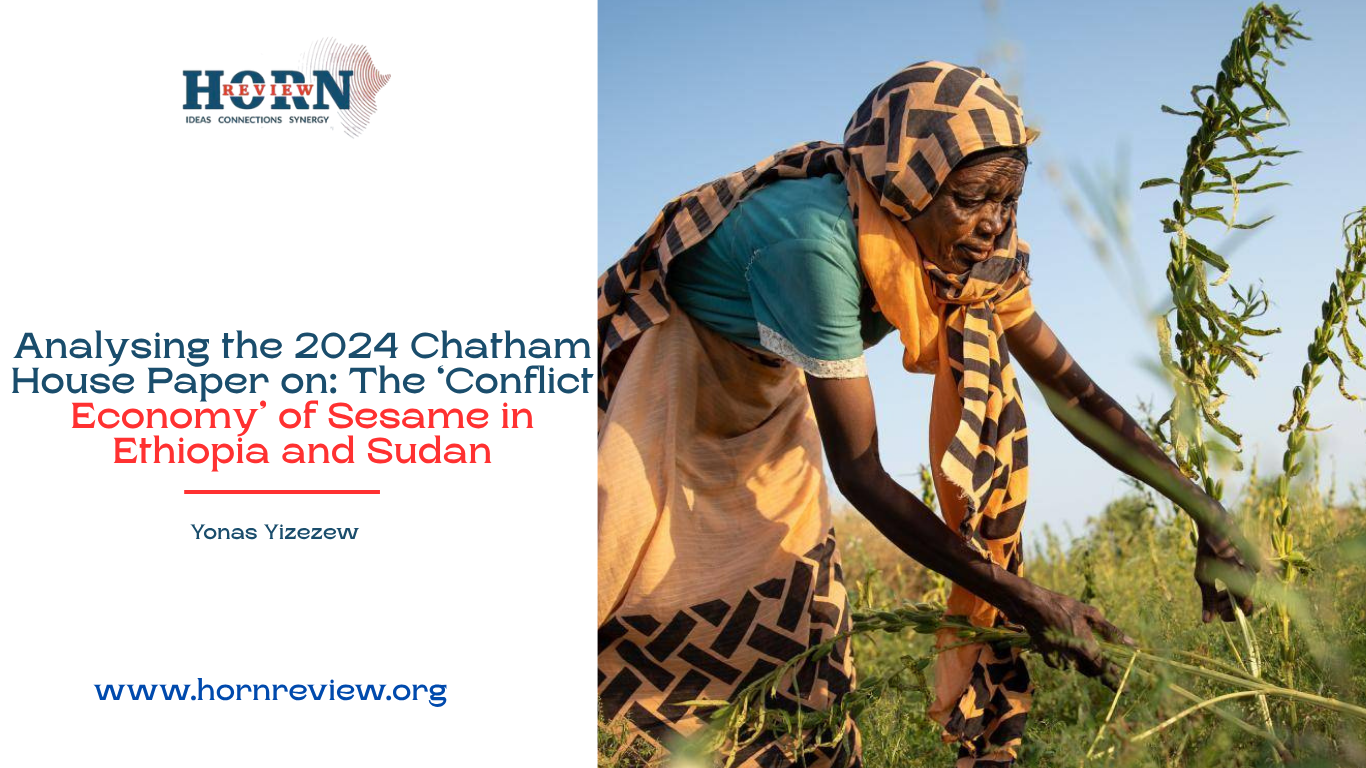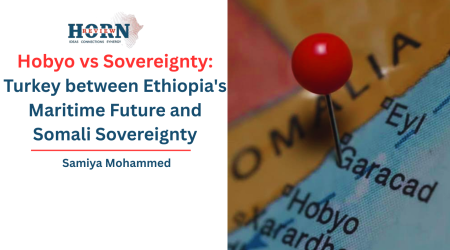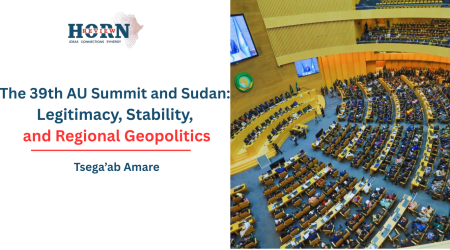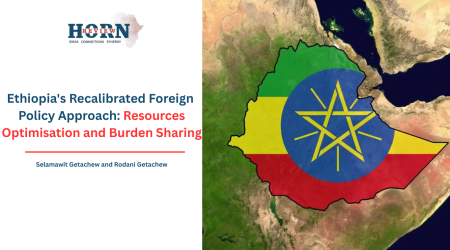
15
Oct
Analysing the 2024 Chatham House Paper on: The ‘Conflict Economy’ of Sesame in Ethiopia and Sudan
Chatham House published a research paper titled ‘The Conflict Economy of Sesame in Ethiopia and Sudan’, authored by Ahmed Soliman and Abel Abate Demissie of the Africa Programme, in April 2024. The paper draws on field research conducted in Ethiopia and Sudan between late 2020 and early 2023. In Ethiopia, primary data collection was conducted in Addis Ababa and Amhara regional state (Bahir Dar, Gondar), as well as in the contested territory of Western Tigray/Welkait. In Sudan, data collection was conducted in Khartoum, Gedaref and Kassala states. It explores how the sesame sector has become deeply entangled in both local and transnational conflicts and concludes by offering recommendations for effective policy interventions that might help to address internal and transnational conflict dynamics affecting both countries.
The research paper presents a detailed analysis of how sesame, a traditional agricultural commodity, has been transformed into a central driver of conflict and political realignment along the Ethiopia–Sudan border. The research argues that control over this crop is no longer merely an economic concern but has become a fundamental aspect of power dynamics, influencing territorial claims, fueling rivalries, and sustaining violence in the region. What was once a source of household income has become a strategic asset that alters incentives for local elites, armed actors and external partners.
The analysis situates the sesame trade within its historical and geographical context. Sesame has long been a vital export for both Ethiopia and Sudan. A key production zone spans the contested borderlands, including the fertile Al Fashaga territory, parts of Gedaref and Kassala in Sudan, and adjacent areas of Amhara and Tigray in Ethiopia. This shared economic interest once offered a basis for cross border commerce and seasonal labor. The Chatham House fieldwork shows that those patterns have changed since the outbreak of war in northern Ethiopia in late 2020. The Sudanese Armed Forces moved to occupy Al Fashaga in December 2020, a shift that severed many of the informal arrangements that had previously governed cross border cultivation and trade.
The report documents a process of securitization in which military actors and their commercial affiliates have moved to capture market functions. In Sudan, army aligned companies and conglomerates have expanded their footprint in collection, storage and export. Those entities have displaced local traders and Ethiopian investors, and in some cases have rerouted sesame flows toward regional partners. The result is a market that is increasingly controlled at its chokepoints by security linked actors. In Ethiopia the evidence shows parallel dynamics. Commercial actors with political ties have increased their ownership of processing facilities and export networks. The combined effect is to concentrate rents in hands that are less accountable to local communities.
Field interviews cited in the Chatham House study reveal how routine financing arrangements compound these trends. Farmers commonly rely on pre harvest loans and in kind advances from local buyers and brokers. Those credits are repaid in grain at harvest. Where brokers are linked to armed patrons, borrowers face pressure to sell to those intermediaries and to accept discounts or diversions of their produce. These practices convert agricultural credit into a mechanism for extraction. They also raise the barriers for independent traders and for farmers who seek to access formal export channels.
Trade routes and cross border corridors are critical to understanding the political economy. The research points to the reconfiguration of routes through Western Tigray and Welkait, which has created new connections toward Eritrea. In some instances consignments of sesame have been used as in kind payments for protection and logistics. Such arrangements convert agricultural output into a medium of political exchange. The internationalization of demand, notably from Middle Eastern markets, further amplifies the stakes. Foreign buyers and finance can strengthen incentives for those who control physical access to the crop, unless buyers insist on transparent supply chains.
The political consequences are profound. Control of sesame value chains creates new economic winners. Militias, security linked firms and politically connected traders benefit directly from monopoly positions. Those beneficiaries are often at odds with civilian institutions. In Ethiopia the capture of commodity rents interacts with existing ethnic and regional tensions and can deepen fragmentation when local elites monetize control of land and trade. In Sudan the capture of agricultural revenue by military associated firms consolidates the bargaining power of armed actors within national politics. Across the tri border area, these redistributive effects increase the economic cost of peace.
The report emphasizes that the war economy is self-reinforcing. Profits from sesame finance logistics, recruitment and patronage. Those profits reduce the incentives for actors to demobilize or to accept negotiated settlements. The outcome is a cycle in which economic control and armed control reinforce one another.
The research paper then calls for a fundamental shift in how policymakers approach conflict in the Ethiopia-Sudan borderlands. It argues that interventions must first understand and address the transnational economic drivers of violence, moving beyond a purely domestic lens. This requires recognizing that a legal commodity like sesame can act as a conflict good and that informal cross-border trade, often labeled as smuggling, is a vital livelihood necessity that should be regularized rather than criminalized. The report strongly advocates for bottom-up initiatives, suggesting that supporting local civic platforms and grassroots dialogue is crucial for building resilience against national-level tensions. Furthermore, it recommends the careful reactivation of bilateral border agreements and the establishment of trust-building measures, such as restoring shared farmlands and trade routes, to transform sesame from a source of conflict into a foundation for sustainable peace.
On a regional and geopolitical level, the paper emphasizes the need to navigate the complex and shifting alliances between Horn of Africa nations. It advises that external partners should work to bolster cross-border mechanisms within existing African Union and IGAD frameworks, while also ensuring that local dynamics inform high-level mediation efforts. A key recommendation is the improved coordination of international envoys and resources from bodies like the EU, UN, and US. This coordinated approach should aim to moderate securitized strategies and instead prioritize long-term stability through diplomatic engagement and support for regional economic integration, thereby helping to de-escalate tensions between Ethiopia and Sudan.
By Yonas Yizezew, Researcher, Horn Review










